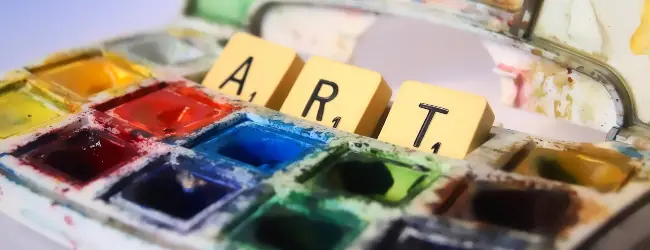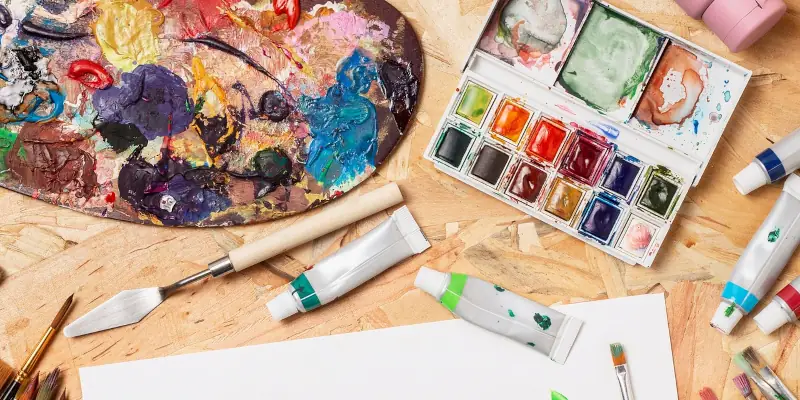I have gradually understood how to live logically. In an earlier article (this article), I said empathy gives us a colorful life, and logic doesn’t.
However, it was wrong. I realized that logic provides us with another kind of bright life. Today, I will talk about it.
How to make our lives exciting, logically
Sometimes, we want to make our lives exciting. We don’t want a boring life without change. It is the same as stagnation.
In other words, change is a part of happiness.

A change is the same as having a problem. Although we often don’t want it, it is a misconception. Our honest want would be the following:
- (Wrong) We don’t want new problems.
- (Correct) We want problems that are moderately difficult but solvable.
A logically enjoyable life
Identifying this difference tells us why we stagnate. Avoiding problems and sticking to unsolvable problems creates stagnant states.
On the other hand, if we can continue to clear moderate problems, even gradually, our lives should be better.

Problems are things that hinder our happiness. It means that solving reasonable problems is realizing happiness, even partially. That should make our lives exciting.
However, we sometimes don’t know how to do it.
Today, I will explain how to make our lives logically enjoyable. This might allow you to get out of boredom.
Empathic excitement vs. logical excitement
To understand logical excitement, let’s compare empathic and logical enjoyment.
Empathy and logical sense give us different focuses. They are as follows:
- Empathic life: Amplifying emotions makes life exciting.
- Logical life: Curiosity and improvements make life exciting.

Making our lives logically colorful is simple. We follow curiosity.
It is a mental system that breaks down big problems into moderate difficulties. We are naturally interested in things that can improve our lives. That is why curiosity often provides us with breakthroughs and progression.
The difference in focus
However, it is a little abstract. We often cannot find our interest. In such a state, we tend to learn a new hobby that doesn’t directly improve our lives. That causes another boredom and stagnation. It doesn’t work for us.
On the other hand, rational curiosity teaches us ways to improve our everyday life.

The following differences will bring us clarity.
- Empathy makes us focus on the best and ideal things. Its cause is imagination based on our emotional experience. That makes us stick to one thing.
- Logical sense makes us focus on better and more effective things. Focusing on efficiency allows us to change lightly. Repeating that creates a big change.
In other words, if you want to change with curiosity, let go of one ideal thing and focus on reasonable things.
Example of my food problem
To understand more easily, let’s look at an example of my experience.
I had a problem with my diet. I wanted to make meals more diverse but also reduce food costs.
Before developing my logical strength, I only ate a few ideal meals. It was healthy, balanced, and the cheapest. I repeated the same ingredients. I had meat and fish every other day. They were tasty, but to be honest, it was boring.

However, after training my logical sense, I started to think differently.
I noticed that there is not much difference between the cheapest and affordable items. There was no point in clinging to the lowest price.
My rationality told me, “It is absurd to end my life without enjoying it. My fear of death causes the clinging. Be rational. It is enough as long as it is reasonable, even if it is not ideal. Compare the difference from your total assets. The difference is nothing more than an error. It would be more efficient for my total life.”
This awareness freed me from sticking to an ideal.
The small modification that brought a big change
I have come to classify and consider prices as follows:
- High price: I will not buy. However, I try to create this if it interests me.
- Regular price: I will not buy. I am not interested.
- Affordable price: I will try them. It is about 20 to 40 % in my daily life. (Previously, it was 0%.)
- The cheapest: I use this mainly. It is about 60 to 80 % in my daily life. (Previously, it was 100%.)

This classification surprised me because there was almost no impact on my food costs. Even though affordable things are a little higher than the cheapest, I don’t have to replace everything with them. It is only 20 to 40 %. In addition, the price margin between affordable and the cheapest items is not so big in groceries. The additional costs are completely insignificant if compared to my total assets.
It meant that my diet would become much richer with a small adjustment.
Another surprise
There was another surprise as well. I could reduce my food costs.
I reduced the main food cost by finding other inexpensive ingredients, such as edible wild plants.

I became healthier, reduced my food costs, and have come to enjoy various ingredients.
There were no sacrifices. I found a satisfactory answer. In other words, I improved my diet.
The power of curiosity
Perhaps this is the power of curiosity. Curiosity doesn’t require us to make large sacrifices. It is just a slight adjustment.
A small change brings another change that requires a small modification. Although the modification means an unexpected error, we don’t think it is a failure. It is a discovery. We try to be more logical about it. Since it is a small modification, we can try it lightly. A good cycle of trial and error with curiosity, without the sense of failure, begins.
Repetitive small changes become a big improvement in the end.

On the other hand, empathy requires sacrifices. It frightens us of even a small change. That is where the stagnation begins.
That is why rational curiosity teaches us ways to improve our everyday life. Letting go of one ideal thing gives us an enjoyable change.
Conclusion
That is how to make our lives logically enjoyable.
Rational curiosity teaches us ways to improve our everyday life.
If you want to change with curiosity, letting go of one ideal thing would be a way.
This might allow you to get out of boredom.
Thank you for reading this article. I hope to see you in the next one.


